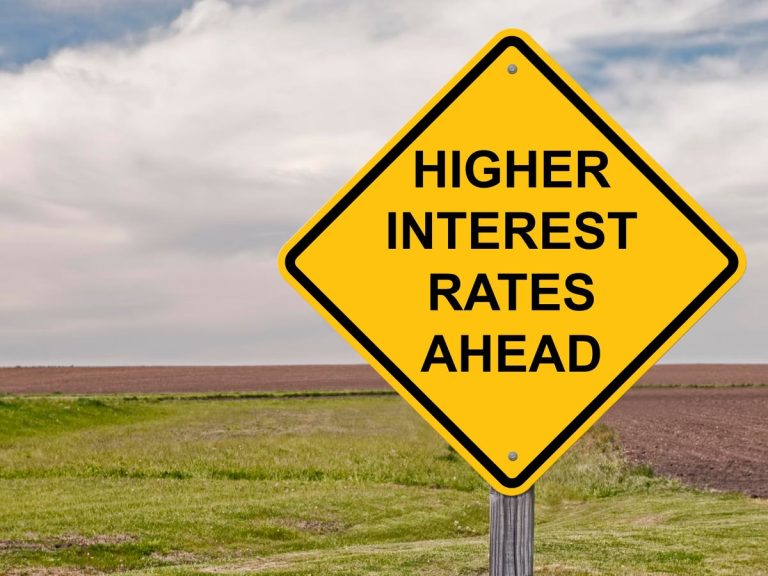Student loan interest rates are a point of contention for many borrowers. And with rates rising over the last few years, some are sounding the red alert on those rates. But in truth, they don’t matter for most borrowers.
Even though student loan interest rates are higher right now than they were a few years ago, they only matter to a certain segment of borrowers. Since many borrowers are on an income-driven repayment plan, their monthly payment is based on their income, not their student loan interest rate.
And since income-driven repayment plans like SAVE include loan forgiveness and an interest waiver, the actual interest rate is even less important.
Student loan interest rates really only impact parents who took out parent PLUS loans that don’t qualify for income-driven plans, borrowers with private student loans and people who are just focused on paying off their federal student loans no matter what.
Everyone else can just ignore student loan interest rates for the most part, even if they seem outrageous. Here’s why.
What Are Interest Rates On Federal Student Loans?
First, you should know federal student loan interest rates fluctuate based on changes made by the Federal Reserve to the federal funds rate over time and other market conditions. That said, the Fed’s moves in the present don’t impact federal student loans from previous years since rates assigned each year are fixed for the duration of the loan term.
Simply put, a federal student loan taken out in 2018 has the same rate until it’s paid off, just like student loans taken out in 2023 will have this year’s rate locked in for the entire repayment period (unless these loans are refinanced).
This doesn’t change the fact that federal student loan rates seem high right now. According to Studentaid.gov, borrowers who take out federal student loans on or after July 1, 2023, and before July 1, 2024 will pay:
- 5.50% on Direct Subsidized Loans and Direct Unsubsidized Loans
- 7.05% on Direct Unsubsidized Loans
- 8.05% on Direct Plus Loans
When Student Loan Interest Rates Don’t Matter
High rates or not, these details won’t make a meaningful difference in your life if you are repaying your student loans on an income-driven plan, which you probably should be. After all, income-driven repayment plans let you pay a percentage of your discretionary income for a set period of time, after which they forgive your remaining loan balances.
In other words, income-driven plans base what you owe each month on your income and family size regardless of where interest rates are set. That said, forgiven amounts are typically considered taxable income in the year debt is forgiven with these plans, although these taxes are currently suspended through 2025 thanks to the American Rescue Plan Act of 2021. Furthermore, most borrowers won’t face taxes on this forgiveness anyway due to tax loopholes like insolvency.
President Joe Biden’s new SAVE income-driven repayment plan is the one you’ll likely want to be on if you want to make the lowest possible monthly payment and minimize potential taxes on forgiven loan amounts down the line.
Essentially, this new income-driven repayment plan lets consumers pay just 5% of their discretionary income toward undergraduate student loans each month, which is half the amount other income-driven plans have historically required.
Further, Biden’s SAVE plan increases the amount of income that is exempt from payments from 150% to 225% of the poverty line. This means more people will have $0 monthly payments as long as their income stays below that threshold.
Better yet, this new income-driven plan stops interest from adding to the student debt pile when your monthly payment is less than interest that accrues. For example, if you owe $0 per month on your student loans due to your income, but your loans would normally accrue $37 in interest each month, that monthly interest payment is actually being subsidized by taxpayers and you wouldn’t see your loan balance grow.
Essentially, Biden’s new income-driven plan makes it so people who earn $32,800 per year, or roughly $15 per hour, won’t owe a monthly payment on their student loans. More people with higher incomes can also qualify for $0 monthly payments based on their family size as well. Not only that, but interest won’t accrue, and the Biden administration says even people who do owe a monthly payment on their loans will still save more than $1,000 per year with this plan when you compare it to monthly payments on other income-driven plans.
The end result of this plan: The actual student loan interest rate doesn’t really matter since the loan can’t grow beyond its original amount — assuming you stay in repayment.
Chasing Student Loan Forgiveness
For borrowers pursing student loan forgiveness — which is estimated to be about 50% of all student debt holders — the interest rate on your loan also doesn’t matter.
If you’re going for programs like Public Service Loan Forgiveness or Teacher Loan Forgiveness, your goal should be to pay as little each month as legally required on your loans. The reason: You want to maximize your loan forgiveness.
With that in mind, you want to be on an income-driven repayment plan like SAVE. Furthermore, SAVE is a qualifying student loan repayment plan for PSLF, so you should be on it anyway.
By paying as little as legally allowed on your loans, you can maximize the value of your forgiveness program. And it’s not recommended that you pay extra on your student loans.
The end result is that it doesn’t really matter what your student loan interest rate is. It could be 20% — but your monthly payment is based on your income, and whatever the loan balance grows to is eventually forgiven.
The Bottom Line
If you have private student loans or you’re determined to pay off any kind of federal student loan as fast as you possibly can, the interest rates can be consequential for your finances. The same is true if you have federal student loans that cannot qualify for an income-driven plan, including parents who took out parent PLUS loans to help their kids pay for school.
Everyone else can ignore student loan interest rates and try to get on a plan that minimizes or even eliminates their effects. For the most part, we’re talking about income-driven repayment plans for federal student loans and specifically the new SAVE repayment plan.
Read the full article here









